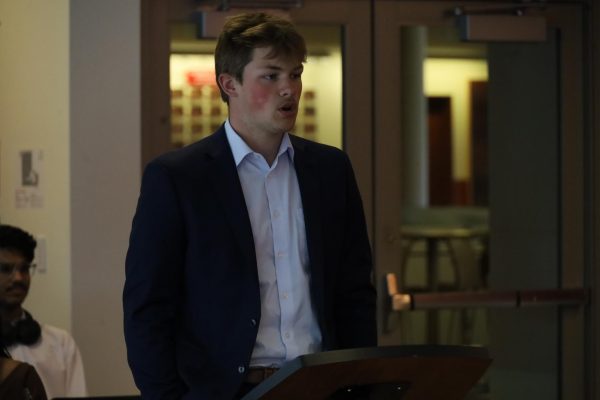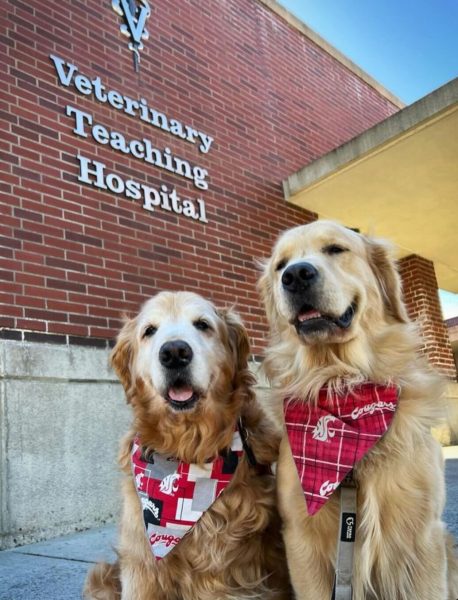Researchers study citrus disease
March 25, 2016
{{tncms-asset app=”editorial” id=”e6bb447c-f236-11e5-8852-1b53cea7f2a9″}}
Three WSU researchers recently received a $2 million grant to prevent the widespread destruction of the world’s citrus fruit industry.
According to the lead researcher David Gang, professor in the Institute of Biological Chemistry, the project’s ultimate goal is to develop a method to culture the citrus killing bacterium in vitro (in the lab) so they can study it and find ways to prevent its spread or kill it.
“Citrus Greening Disease, also called HLB after its Chinese name, Huánglóngbìng, is the most serious disease facing the citrus industry and citrus trees in the U.S. and worldwide,” Gang said.
The grant comes from the U.S. Department of Agriculture’s Specialty Crops Research Initiative Citrus Disease Research and Extension program according to WSU News.
Gang said that HLB causes approximately $7 billion in losses each year to the Florida economy alone.
It appeared in Florida in 2006 and in Texas and California in 2012. It was found in Brazil around 2002. It is originally from China, but is not as severe of a problem there Gang said.
“It has reduced the production of citrus in Florida by over 70 percent since it was first discovered in that state in 2006,” Gang said.
Because no one has been able to culture the bacterium, it is impossible to conduct genetics based experiments to find its weakness and develop a method to fight it.
“Projects like this typically take 4.5 to 5 years to reach the point of having cultures ready to share with other researchers, to be ready for genetics-based experiments,” Gang sad, “However, the citrus industry is in a serious decline and doesn’t have 10 years to wait for a potential cure.”
Gang said that they are hoping to demonstrate within that time frame that they have accomplished significant progress and at that point hopefully the USDA will provide additional funding.
{{tncms-asset app=”editorial” id=”5a130612-f237-11e5-841b-ffaf2b603bdc”}}
Gang said the reason WSU was picked for the research was because there is a unique research team at the university that creates a collaboration not found anywhere else.
Gang said the team is made up of a partnership between his lab and the labs of Haluk Beyenal and Anders Omsland.
“Dr. Beyenal is a world leader in studying and culturing bacterial biofilms,” Gang said. “Dr. Omsland is a world leader in culturing recalcitrant bacteria, like coxiella, which causes Q fever and chlamydia.”
Beyenal is a chemical engineering and bioengineering professor at WSU and Omsland is an assistant professor at WSU in the Paul G. Allen School of Global Animal Health.
“At the current rate of decline, within five years more than 80 percent of all citrus orchards in Florida will be gone,” Gang said. “Eventually it will spread to all reaches of those states, California and Texas, unless a new way of fighting the disease is developed.”
Reporting by Hannah Welzbacker



















